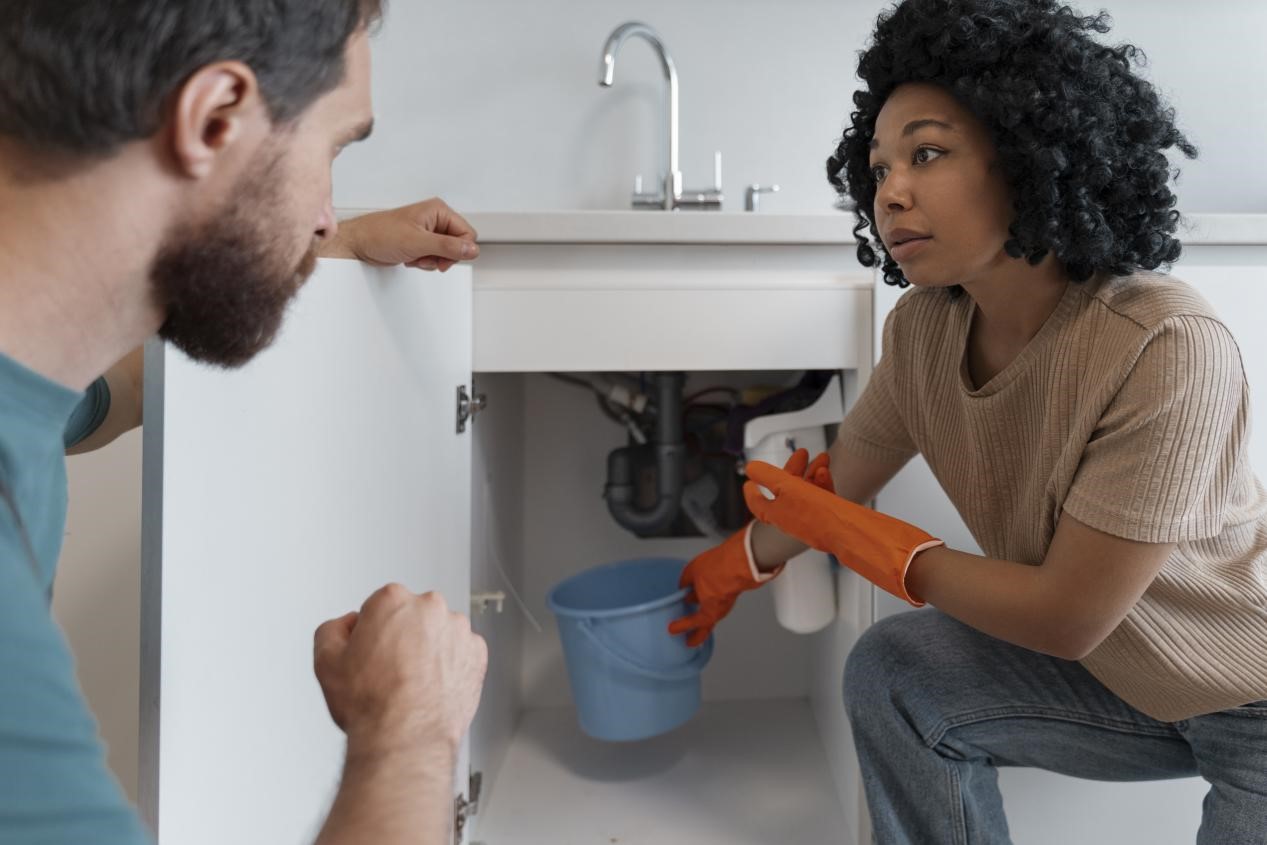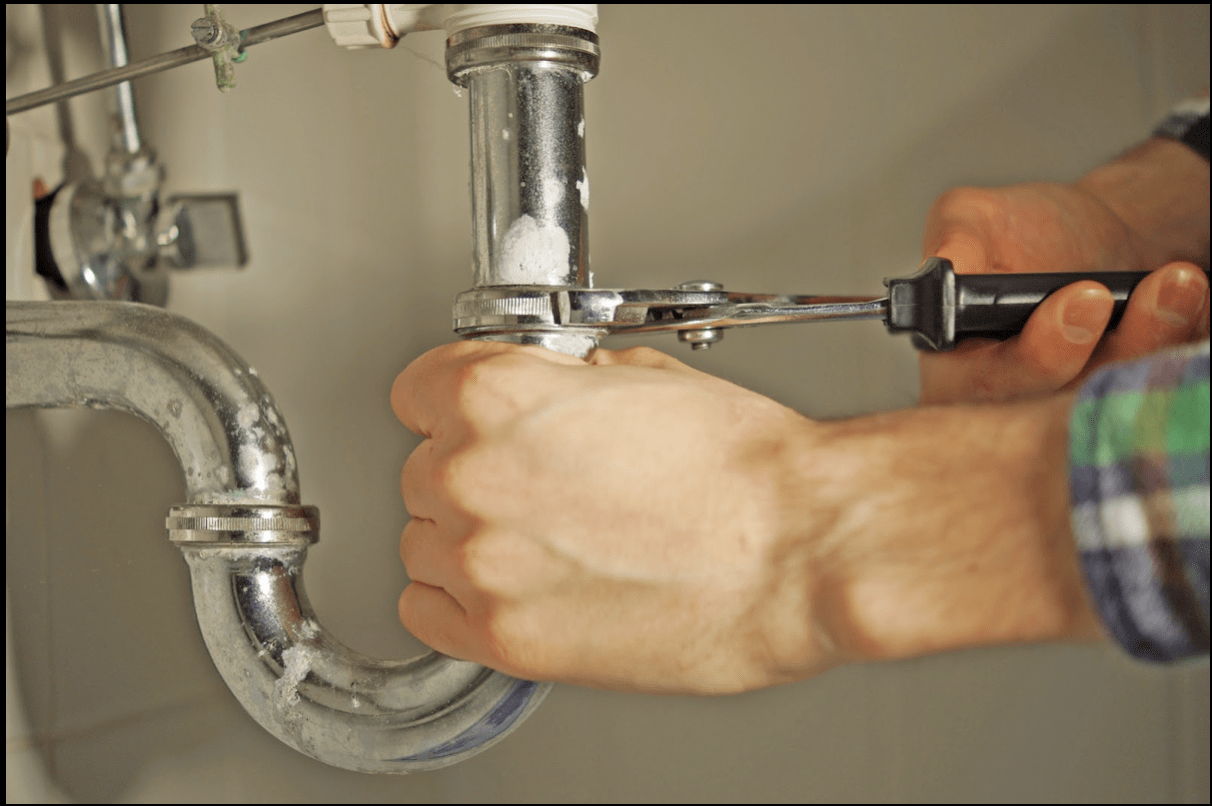Eco-Friendly Plumbing Alternatives: Establishing a More Sustainable Home
Eco-Friendly Plumbing Alternatives: Establishing a More Sustainable Home
Blog Article
The article author is making several good points related to Eco-Friendly Plumbing: Transform Your Home as a whole in this content down the page.

Intro
In today's world, lasting living is becoming progressively vital. One location where property owners can make a considerable impact is through environment-friendly pipes options. By taking on environmentally conscious methods, homes can lower their water and energy consumption while contributing to a healthier world.
Water-Efficient Components
Conventional fixtures often drainage unnecessarily. Nevertheless, modern low-flow bathrooms, taps, and showerheads are designed to reduce water use without giving up performance. These components can considerably decrease household water intake, causing reduced water bills and a reduced ecological impact.
Greywater Solutions
Greywater describes carefully made use of water from resources such as showers, sinks, and washing equipments. As opposed to letting this water go to waste, greywater systems reuse it for non-potable usages such as landscape watering and toilet flushing. By carrying out a greywater system, house owners can save fresh water resources and decrease stress on community wastewater therapy centers.
Rainwater Harvesting
Rain harvesting entails accumulating and saving rain for numerous purposes, consisting of watering, bathroom flushing, and washing. Rain harvesting systems commonly contain a collection surface (such as a roofing), rain gutters, downspouts, and storage tanks. By harvesting rainwater, homeowners can lower their dependence on municipal water resources and save freshwater resources.
Solar Water Heaters
Standard water heaters rely on fossil fuels or electrical power to warmth water, contributing to carbon emissions and energy consumption. On the other hand, solar water heaters utilize sunshine to warm water, providing a renewable and eco-friendly choice. By harnessing solar power, home owners can lower their energy costs and decrease their carbon footprint.
Eco-friendly Pipeline Materials
Typical plumbing materials such as copper and PVC can have negative ecological influences during manufacturing and disposal. Nevertheless, there are sustainable alternatives offered, such as recycled steel, cross-linked polyethylene (PEX), and high-density polyethylene (HDPE). These green pipe products offer toughness, long life, and reduced ecological impact.
Energy-Efficient Home appliances
Along with water-efficient components, energy-efficient home appliances can even more decrease a house's environmental impact. High-efficiency washing devices and dishwashers make use of less water and power per cycle, assisting to conserve resources and reduced utility bills. When shopping for devices, search for power STAR ® licensed versions for maximum performance.
Smart Water Management Systems
Advances in innovation have actually made it simpler than ever to keep an eye on and optimize water use in the home. Smart water management systems make use of sensing units and data analytics to track water use in real-time, identify leaks, and supply insights for preservation. By applying wise water monitoring remedies, home owners can decrease waste and make the most of performance.
Expense Factors to consider
While environment-friendly plumbing options might have higher upfront prices than traditional options, they frequently give long-term savings with lowered water and energy costs. In addition, lots of federal governments supply rewards such as rebates and tax obligation credit reports for eco-friendly upgrades, assisting to balance out first costs.
Installation and Maintenance
Correct installation and routine maintenance are crucial for guaranteeing the effectiveness and long life of eco-friendly pipes systems. It's important to employ certified professionals to set up and service these systems to stay clear of problems and make best use of efficiency. Routine upkeep tasks such as looking for leaks and cleaning filters can additionally aid stop issues and enhance performance.
Environmental Advantages
The ecological advantages of environment-friendly plumbing are substantial. By saving water and energy, home owners can reduce their carbon footprint and minimize their impact on natural deposits. In addition, environmentally friendly pipes practices can help safeguard communities and maintain biodiversity for future generations.
Health Conveniences
In addition to environmental advantages, eco-friendly plumbing can also contribute to boosted interior air high quality and health and wellness. By utilizing non-toxic materials and reducing chemical direct exposure, homeowners can create a healthier living setting on their own and their households.
Government Motivations
Many federal governments offer monetary motivations to motivate home owners to adopt eco-friendly pipes techniques. These rewards may consist of refunds, tax credits, and low-interest finances for energy-efficient upgrades. By making the most of these programs, homeowners can make green improvements a lot more budget-friendly and obtainable.
Verdict
In conclusion, eco-friendly plumbing alternatives offer many advantages for house owners and the atmosphere alike. By investing in water-efficient components, greywater systems, rainwater harvesting, solar hot water heater, green pipeline products, energy-efficient appliances, wise water administration systems, and various other lasting remedies, houses can minimize their environmental footprint, lower their energy costs, and contribute to a much healthier planet for future generations.
10 Greener Plumbing Solutions for a Sustainable Home
Install Water-Saving Fixtures
One of the most effective ways to conserve water is by installing water-saving fixtures. Low-flow toilets, aerated faucets, and adjustable showerheads are excellent choices. These fixtures reduce water consumption without compromising performance, allowing you to save both water and money.
Embrace Tankless Water Heaters
Say goodbye to energy-hungry traditional water heaters! Tankless water heaters are a greener alternative. Unlike their counterparts, these systems heat water on-demand, eliminating the need for a constantly heated reservoir. By only heating water when needed, tankless water heaters save energy and lower utility costs.
Opt for Greywater Recycling
Make the most of your water usage by recycling greywater. Greywater recycling systems collect and treat water from showers and laundry, making it suitable for non-potable uses like toilet flushing or watering plants. This reduces the strain on freshwater resources and minimizes water waste.
Consider Energy-Efficient Water Heaters
Upgrade to energy-efficient water heaters like heat pump water heaters or solar water heaters. Heat pumps utilize ambient air to heat water, while solar heaters use the sun's energy. Both options significantly reduce energy consumption and contribute to a greener home.
Invest in Leak Detection and Prevention
Undetected leaks can lead to significant water waste. Install smart water leak detection devices that monitor your water usage and promptly notify you of any leaks. By taking immediate action, you can prevent water waste and avoid potential damage to your home.
Insulate Your Pipes
Insulating your pipes is a simple yet effective way to improve energy efficiency. Properly insulated pipes minimize heat loss and reduce the risk of frozen pipes in colder climates. By conserving heat and preventing energy waste, you can save on energy bills while enjoying a greener plumbing system.
Harness the Power of Rainwater
Rainwater harvesting is a sustainable practice that can supplement your water needs. Collect rainwater in barrels or tanks and use it for tasks like watering your garden or flushing toilets. This reduces reliance on municipal water supplies and conserves precious freshwater resources.
Choose Eco-Friendly Plumbing Materials
When upgrading your plumbing system, opt for eco-friendly materials. Water-efficient fixtures made from recycled materials and piping materials like PEX (cross-linked polyethylene) promote sustainability. These choices not only conserve resources but also contribute to a greener planet.
Upgrade to Dual-Flush Toilets
Dual-flush toilets offer two flush options: a lower-volume flush for liquid waste and a higher-volume flush for solid waste. By using the appropriate flush setting, you can significantly reduce water consumption. Dual-flush toilets are an easy and efficient way to conserve water in your home.
https://www.croninplumbingandheating.com/post/10-greener-plumbing-solutions-for-a-sustainable-home

As a reader on , I think sharing that section was really helpful. Enjoyed our post? Please share it. Let somebody else discover it. Thank you for going through it.
Visit Our Site Report this page